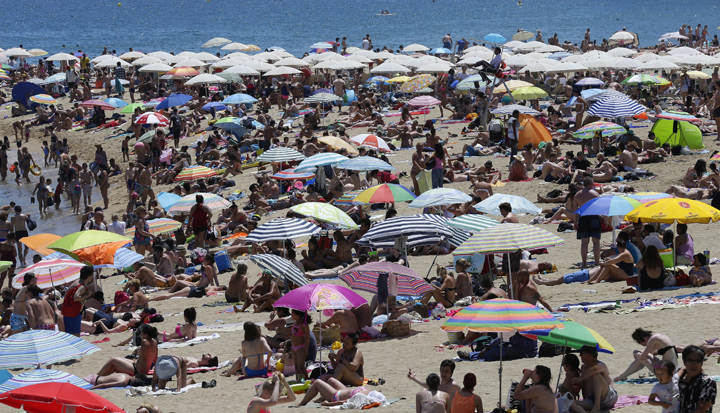Scientist Andrew Solow doesn’t dispute that humans are contributing to climate change, but he doesn’t believe it’s possible to link single extreme weather events to it.

In an article entitled, “Extreme weather, made by us?” published in the journal Science, Solow warns that both the scientific community and the public at large should be careful when pointing to particular weather events, such as heat waves, as being linked directly to human-driven (anthropogenic) climate change.
READ MORE: Study shows impact of irrigation on drought, climate change in Alberta
“While it is possible to see an increase in the rate or frequency of events like heat waves to climate change, it’s not possible to say ‘This particular one was caused by climate change,'” Solow told Global News.
In particular, Solow refers to “attributable risk,” a method of single-event attribution borrowed by epidemiology. Think about the links to lung cancer and smoking, he notes. Lung cancer can be found in both smokers and non-smokers. So just because someone smokes doesn’t mean that there is 100 per cent certainty that he or she got cancer as a result of smoking.
And while you can’t say a particular event occurred due to climate change, the same works in reverse.
“You can’t say an event wasn’t caused by anthropogenic climate change,” Solow said.
Stephanie Herring, a scientist with the National Oceanic and Atmospheric Administration’s National Centers for Environmental Information said that she agrees that scientific papers need to be careful when casually linking events with climate change, however, she believes that single extreme weather events can be linked with some certainty.
“You need to do it with caution and explanation of results very carefully,” she told Global News.
Herring, who was the lead author of NOAA’s Bulletin of the American Meteorological Society’s Explaining Extreme Events report said that in-depth, extreme weather event-specific studies are able to link things such as heat waves or precipitation events to climate change, although with varying degrees of certainty.
READ MORE: Startling image of emaciated polar bear: Sign of climate change?
The reason for the variances lie with the fact that the consequences of a warming climate aren’t known for each type of weather. For tornadoes and hurricanes, for example, it’s debated as to whether or not there will be a higher frequency of events or more intense events.
For heat waves and precipitation events, however, there is greater certainty.
“We don’t have enough information to find that fingerprint across all types of events,” Herring said. And that’s the challenge of climatologists as they study the effects of a warming planet.
Linking the events might be challenging, but not impossible, Herring said, though it would be a probabilistic determination rather than a deterministic one, meaning that there the event is likely to be attributed to a particular factor.


Comments